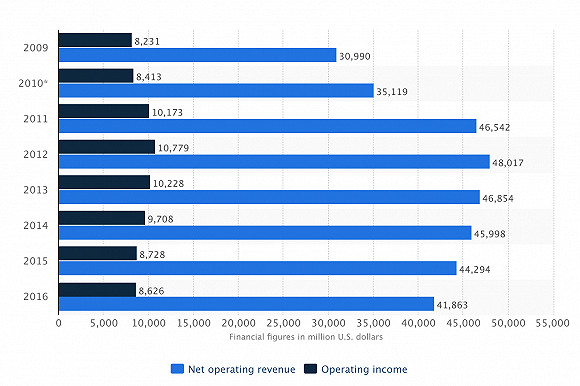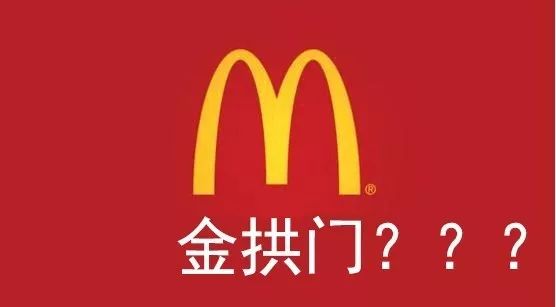Coca-Cola is getting rid of its "carbonated beverage company" name, and tea and coffee are selling better and better.

For professional baristas, please follow the coffee workshop (Wechat official account cafe_style)
Every time a financial report is issued, Coca-Cola is one step further from the name of "carbonated drinks company".
Last night, Coca-Cola reported Q3 results that its overall revenue fell 15 per cent to $9.1 billion year-on-year as a result of the sale of its bottling franchise, but excluding the impact, Coca-Cola's revenue grew by 4 per cent.
Some analysts believe that Coca-Cola is currently experiencing the pain of business restructuring, but after selling the bottle franchise, Coca-Cola will only provide concentrated liquid in the future. it will not be responsible for high-cost links such as equipment and materials, production and sales, logistics and transportation. The "asset-light" business model will boost profits over the next two years.
During the reporting period, Coca-Cola not only received fees for the sale of franchises, but also significantly reduced operating and management expenses, according to the financial report, operating expenses fell by about 20%. This has led to a big increase in the company's operating profit margin and net profit, stopping the decline in profits that began in 2012.
Since the new CEO James Quincy took office in May, Coca-Cola has turned to "beverage companies" rather than "carbonated beverage companies", looking for diversified growth, especially in health and high-end products. After a quarter of testing, Coca-Cola did begin to seriously take off its carbonated beverage company's hat.
From the point of view of the business line, Coca-Cola's main carbonated beverage products have continued the previous downturn, with consumption unchanged from last year, with only Sprite and the newly promoted Coca-Cola Zero Sugar-free better realized. Non-carbonated drinks stood out, with consumption of fruit juice, dairy products and coffee and tea both up 1 per cent year-on-year, but surprisingly, consumption in the water and sports drinks business fell by 1 per cent.
It is worth mentioning that in coffee drinks, Coca-Cola has partnered with Dunkin' Donuts doughnuts and McDonald's to enter the bottled coffee business. In addition, Coca-Cola continues to increase its investment in non-carbonated drinks and recently spared no effort to increase its investment in Tangli Water and Yiquan, spending 10 million pounds in the UK alone to better meet the growing consumer demand for tonic water.
Interestingly, Coca-Cola also wants to be a "technology company". It uses the collected data, coupled with artificial intelligence technology, to prepare new products that are healthier and more in line with consumer preferences. The new product tested recently is cherry-flavored Sprite, but it makes me a little skeptical about life. After having cherry-flavored Coke, some people still like cherry-flavored Sprite?
Although Coca-Cola has been emphasizing to be a diversified beverage company, carbonated drinks still account for the bulk of the company's business, and the growth rate of the new business line it is trying to develop can hardly offset the sharp decline in carbonated beverage sales. Therefore, when it comes to carbonated drinks, Coca-Cola is also trying to make some changes to slow down the decline in revenue. In July, seven beverage companies, including Coca-Cola, pledged to reduce the sugar content of their drinks. Since August, Coca-Cola has stopped producing Coke Zero in the United States and replaced it with a healthier Coke Zero Sugar Diet Coke, which has achieved good results.
In addition, Coca-Cola is offering a $1 million reward for a new generation of sweeteners to break new ground in carbonated drinks. In Japan, Coca-Cola also launched a Coca-Cola that claims to absorb fat to achieve slimming effect. Despite the controversy, Coca-Cola has also become an online celebrity product that has been talked about.
Compared with Pepsi's previous third-quarter figures, we found that Coca-Cola took away some of its rival's market share in North America. Pepsi's quarterly sales fell for the first time this year. Overall, Pepsi's revenue growth is also slower than that of Coca-Cola, with 1.3% for the former and 4% for the latter.
According to the forecast in the financial report, PepsiCo's organic revenue is expected to grow by about 2% in 2017, compared with 3% for Coca-Cola. Nik Modi, an analyst at RBC, believes that Coca-Cola has done better than Pepsi because of its aggressiveness in non-carbonated drinks.
Over the past few decades, Coca-Cola has added nearly 4000 new products and more than 500 brands, whether it's laying off staff or selling its business, probably the price it has to pay to restore growth and embrace change.
Important Notice :
前街咖啡 FrontStreet Coffee has moved to new addredd:
FrontStreet Coffee Address: 315,Donghua East Road,GuangZhou
Tel:020 38364473
- Prev

Dirt! Dirt! Dirt! China McDonald's renamed McDonald's! What's the name of McCoffee, please?
Professional barista communication please follow the coffee workshop (Wechat official account cafe_style) suddenly Weibo exploded tonight! McDonald's is going to change its name, but the news of calling McDonald's is true! Industrial and commercial information shows: on October 12, 2017, McDonald's (China) Co., Ltd. changed its name to McDonald's (China) Co., Ltd. The review is as follows: January 9, 2017
- Next

The world's first "silent" Starbucks! Starbucks sign language turns out to be like this.
Professional barista communication please follow the coffee workshop (Wechat official account cafe_style) the world's first "silent" Starbucks has officially opened in Bangsar Village II, Malaysia! A total of 10 deaf-mute employees and baristas were hired in this store, including the manager on duty. Each of them is professionally trained! The editor believes that they can even be better than ordinary
Related
- What is the difference between Indonesian Sumatra Mantinin coffee and gold Mantinin? How to distinguish between real and fake golden Mantelin coffee?
- What does bypass mean in coffee? Why can hand-brewed coffee and water make it better?
- Unexpected! Ruixing Telunsu lattes use a smoothie machine to foam milk?!
- % Arabia's first store in Henan opens into the village?! Netizen: Thought it was P's
- Does an authentic standard mocha coffee recipe use chocolate sauce or powder? Mocha Latte/Dirty Coffee/Salty Mocha Coffee Recipe Share!
- What is the difference between Vietnam egg coffee and Norway egg coffee? Hand-brewed single product coffee filter paper filter cloth filter flat solution!
- What is the difference between sun-cured and honey-treated coffee? What are the differences in the flavor characteristics of sun-honey coffee?
- How to make Italian latte! How much milk does a standard latte use/what should the ratio of coffee to milk be?
- How to make butter American/butter latte/butter Dirty coffee? Is hand-brewed coffee good with butter?
- Is Dirty the cold version of Australian White? What is the difference between dirty coffee/decent coffee and Australian white espresso?

